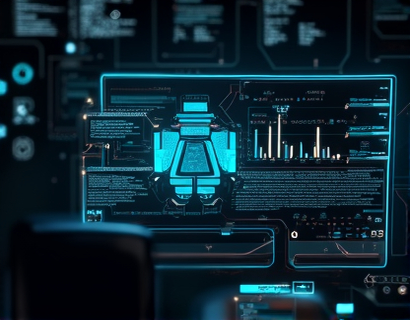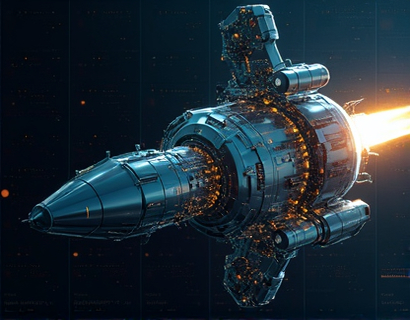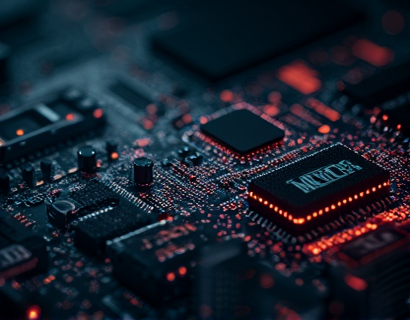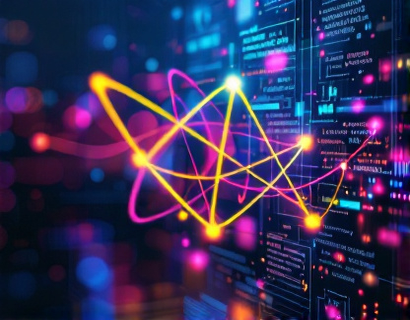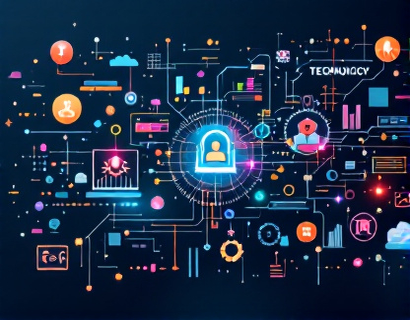Decentralized Transformation: Leveraging AI and Crypto for Advanced Digital Solutions
The digital landscape is undergoing a profound transformation, driven by the convergent powers of artificial intelligence (AI) and cryptocurrency. This synergy is giving rise to decentralized applications and services that not only enhance user experience but also drive unprecedented levels of engagement. As tech-savvy innovators and early adopters increasingly turn their attention to the intersection of AI and crypto, it becomes crucial to explore the intricate dynamics and potential of this emerging field. This article delves into the transformative synergy between AI and cryptocurrency, highlighting the emergence of decentralized applications and services that are reshaping the future of digital interactions.
The foundation of this transformation lies in the decentralized nature of blockchain technology, which underpins cryptocurrency. Blockchain's inherent characteristics of transparency, security, and decentralization offer a robust framework for building trust and ensuring integrity in digital transactions. When combined with AI, which excels in data analysis, pattern recognition, and autonomous decision-making, the potential for innovation becomes immense. Decentralized applications (dApps) leverage these technologies to create platforms that operate without central authorities, thereby reducing reliance on intermediaries and enhancing user control over their data and assets.
One of the key areas where AI and cryptocurrency intersect is in the development of decentralized finance (DeFi) platforms. DeFi aims to recreate traditional financial systems on blockchain, offering services such as lending, borrowing, and trading without the need for central banks or brokers. AI algorithms can optimize these processes by analyzing vast amounts of market data to predict trends, manage risks, and automate trading strategies. This not only improves efficiency but also makes financial services more accessible to a global audience.
Another significant application of AI in the decentralized space is in the realm of smart contracts. Smart contracts are self-executing contracts with the terms of the agreement directly written into code. AI can enhance smart contracts by providing predictive analytics and real-time data processing, ensuring that contracts are executed accurately and efficiently. For instance, AI can monitor external data sources to trigger contract actions based on predefined conditions, thereby automating complex business processes and reducing the need for manual intervention.
The integration of AI and cryptocurrency also extends to the domain of identity verification and privacy. Decentralized identity solutions leverage blockchain to give users full control over their personal data, while AI can enhance these solutions by implementing advanced biometric recognition and behavioral analytics. This combination ensures secure and seamless authentication processes, protecting user privacy and preventing fraudulent activities. As privacy concerns grow in the digital age, such solutions become increasingly vital.
In the area of content creation and distribution, AI and cryptocurrency are revolutionizing the way creators monetize their work. Decentralized platforms powered by blockchain allow artists, writers, and musicians to publish and distribute their content directly to audiences, bypassing traditional gatekeepers. AI can assist in content recommendation systems, ensuring that users discover relevant and high-quality content tailored to their preferences. Additionally, tokenization of content through cryptocurrency enables creators to receive direct payments and rewards, fostering a more equitable and sustainable ecosystem.
The gaming industry is another sector experiencing a significant transformation through the combination of AI and cryptocurrency. Decentralized gaming platforms utilize blockchain to create unique in-game assets that can be owned and traded by players. AI enhances these platforms by generating dynamic game environments, NPC behaviors, and personalized gaming experiences. This not only increases player engagement but also opens new revenue streams for developers through in-game token economies and subscription models.
Supply chain management is yet another area where the synergy between AI and cryptocurrency can drive substantial improvements. Decentralized supply chain solutions use blockchain to track the movement of goods in real-time, ensuring transparency and traceability. AI can optimize these processes by predicting demand, managing inventory, and identifying bottlenecks. This combination reduces costs, enhances efficiency, and builds trust among all stakeholders involved.
The healthcare sector is also poised to benefit from the integration of AI and cryptocurrency. Decentralized health records managed on blockchain provide patients with secure and portable access to their medical information. AI can analyze this data to offer personalized health insights and predictive analytics, aiding in early diagnosis and treatment. Furthermore, cryptocurrency can facilitate secure and private transactions for healthcare services, ensuring that patients are compensated fairly for sharing their data.
As the adoption of AI and cryptocurrency continues to grow, the development of decentralized applications and services will become increasingly sophisticated. One of the challenges in this space is the need for interoperability between different blockchain platforms and AI systems. Standardization efforts and the development of cross-chain protocols are essential to create a seamless and integrated ecosystem. This will enable users to seamlessly transition between various services and applications, enhancing the overall user experience.
Another critical aspect is the user interface and experience (UI/UX) design of decentralized applications. While the underlying technology is complex, the end-users should not be burdened with technical intricacies. Intuitive and user-friendly interfaces are crucial for widespread adoption. AI can play a pivotal role in designing adaptive UI/UX that learns from user behavior and preferences, providing a personalized and seamless experience.
Security remains a paramount concern in the decentralized space. Despite the inherent security features of blockchain, the integration of AI introduces new vulnerabilities that must be addressed. AI-driven security solutions can monitor networks in real-time, detect anomalies, and respond to threats proactively. This proactive approach is essential to build trust and ensure the reliability of decentralized applications.
The future of decentralized transformation is also closely tied to regulatory frameworks. As governments and regulatory bodies begin to recognize the potential of AI and cryptocurrency, they are developing guidelines to govern these technologies. Compliance with regulations while maintaining the decentralized ethos is a delicate balance. Innovators and developers must stay informed and adapt to these changes to ensure sustainable growth and adoption.
In conclusion, the synergy between AI and cryptocurrency is paving the way for a new era of decentralized applications and services. By leveraging the strengths of both technologies, we can create more secure, efficient, and user-centric digital solutions. As the landscape continues to evolve, it is essential for tech enthusiasts, innovators, and early adopters to stay informed and engaged. Together, we can unlock the full potential of this transformative combination and shape the future of the digital world.













